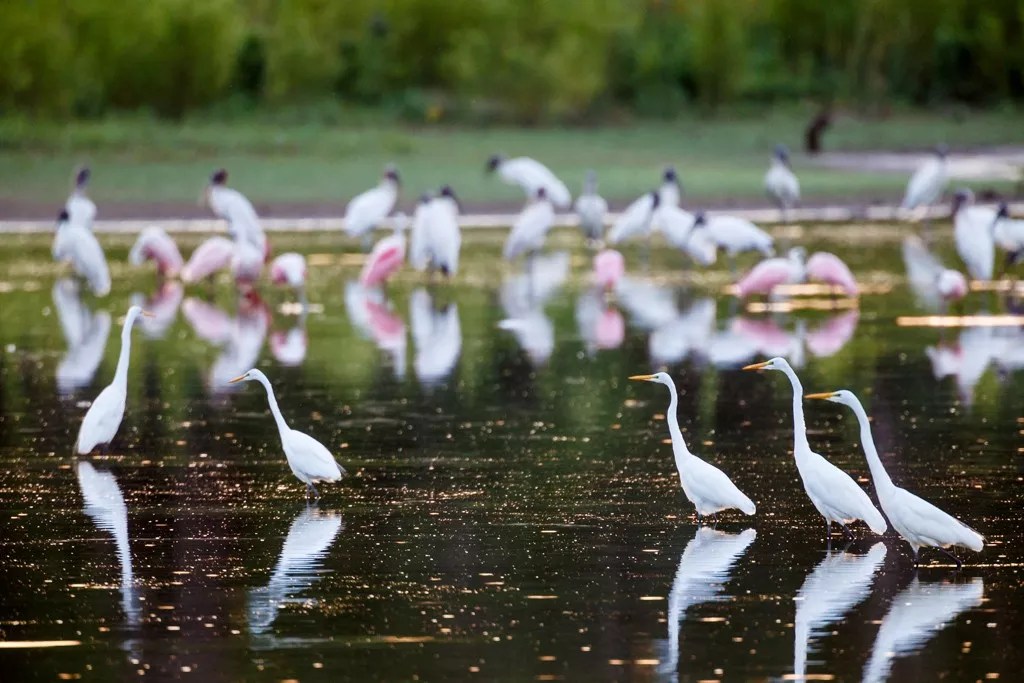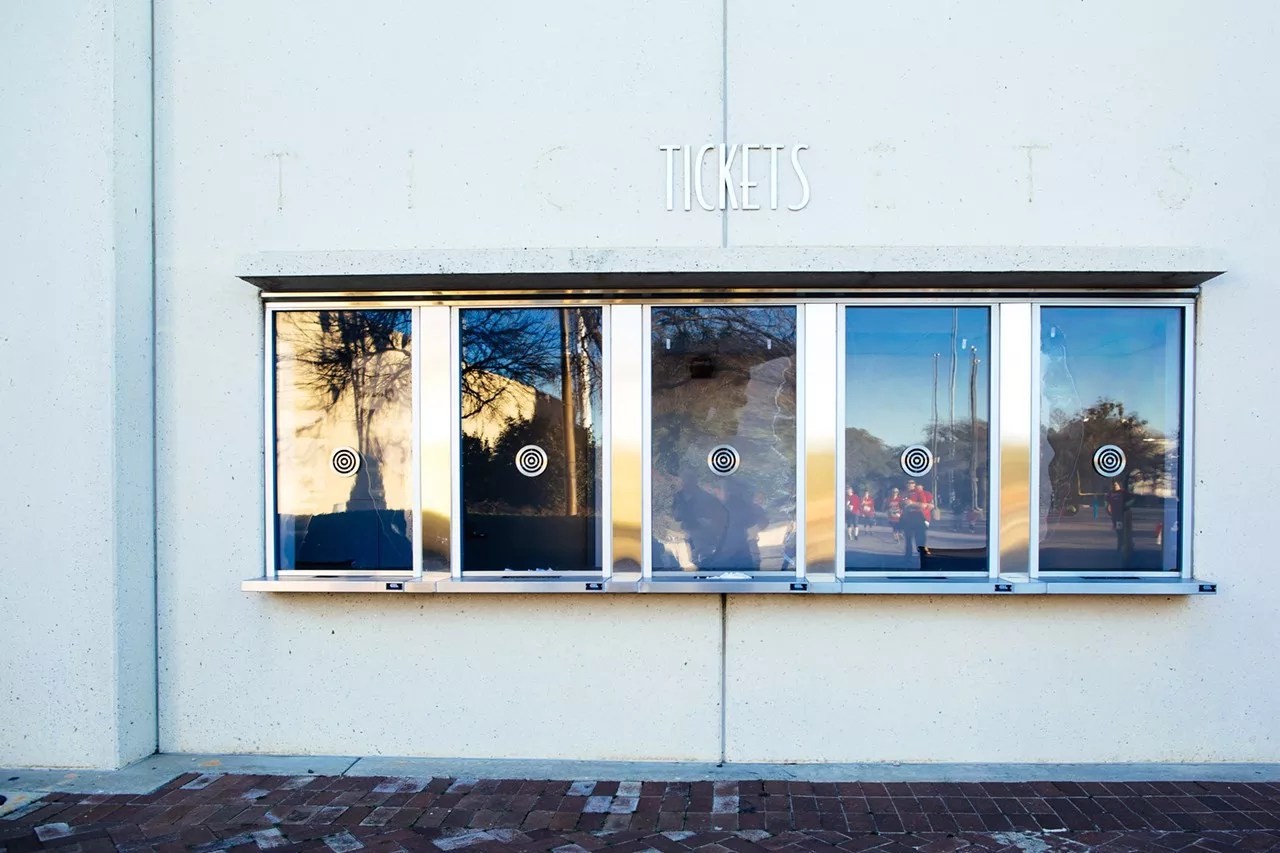
Sean Fitzgerald Photography

Audio By Carbonatix
Dallas is changing because the ground is shifting. The arrival of new, young players and their gradual ascent into elective office is altering the city’s dreams of itself. The new city has visions that the old city fears. Handing big assets such as Fair Park and the Trinity River off to private entities is becoming the old guard’s go-to strategy for dealing with change.
If the members of the old guard were smart, they would see the new, young leadership as a valuable ally, their guide into the future. But a lot of the story of the last 20 years in Dallas has been about the old guard not being very smart.
They don’t get nature. They don’t get diversity. They don’t really get cities. They see the new, young leadership coming down the road at them, but they don’t get who they are (hint to old guard: your own kids). Instead of allying, their impulse is to wall out the new element, block it off, try to run it out of town.
An example is the mayor’s ongoing attempt to hand over Fair Park, the city’s benighted and neglected 277-acre exposition park in South Dallas, to a private entity that amounts to little more than a hand-picked cabal of worn-out wizards. Fair Park is home to the most sacred of all the old-guard wizardly covens, the State Fair of Texas.
Taking Fair Park out of public hands and turning it over to a private social club is a way to sequester it from the new leadership. Take that as a template for how the city’s old leadership intends to deal with the future.
A sacred cow much bigger and even more sacred than the fair is the Trinity toll road, a 20-year-old plan – still not begun – to build a new highway along the river where it runs through downtown. The unbuilt toll road is the bitter battle line where the city’s forces of old and new have been locked in trench warfare for two decades.
Think about it. How many people younger than 50 are ever going to want a great, big, unneeded expressway on top of the river at a time when cities all over the world are spending billions to rip concrete structures out of their waterfronts? The new city dreams of a vast forest park in the center of downtown, crisscrossed by trails for people to walk and ride their dirt bikes.
How many of the old guard own dirt bikes? And maybe that says it all. Maybe people can’t join and form alliances if their dreams can’t mingle.
The old guard sees the new leadership coming at them on the toll road issue, and the response is one that is perfectly predicted by the mayor’s Fair Park plan: privatization to insulate the entire river from public control.
I know you think that’s crazy. You think nobody would really try to hide a river from the public. But, in fact, that is exactly what is going on behind the scenes in the mayor’s attempt to set up a local government corporation to run the redevelopment of the river through downtown.
Last April, Peter Simek at D Magazine wrote a great piece about the LGC. I found it both a little bit reassuring and also a little bit terrifying. He said, “I have no problem with an LGC taking over management of the Trinity River watershed.”
See, I had been hoping I was the only one who had even heard that idea mentioned – a private group taking over the entire watershed. In fact, I was really hoping that I had heard it in my dreams. The watershed, after all, is everything. Everything is the watershed. We’re all in the watershed.
I didn’t hear it only in my dreams. After I read Simek’s piece, I remembered that a serious player in these issues had called to warn me that the old guard wanted to start with some form of an LGC, sold to the public as a way to run a small park on the river, and then jimmy it up legally so that it would have dominion over the entire Trinity River watershed.
I heard it from a guy on the phone even before I read Simek’s piece. He’s a serious guy. But I hung up, and I put it on the back shelf because I can only afford to carry around so much paranoia at a time.
I thought, “He’s a serious guy. He would know this. But I can’t even feature what something like that would mean. The city would give away democratic control over its entire watershed to something called an LGC? Can a city pass an ordinance that removes it from the United States? I mean, what about the Civil War?”
But Simek hit me with yet another heart-stopper in his piece. He listed a number of things he thought the city would have to do in order to establish basic social trust for a Trinity River LGC, all great ideas, but one of them was this: “The LGC should not possess the authority to build a roadway, toll road, highway or any similar transportation infrastructure in the city-owned floodway.”
I saw that, and I immediately got a toothache. I thought, “No, I swear I heard that one in a nightmare – that the LGC would actually be a mechanism that could get the Trinity toll road built and get it done away from and outside of democratic control. That can’t be anything that any real person is actually thinking.”
But obviously Simek was hearing it. And since reading Simek’s piece, I have been having some of those phone calls, too – chats with serious people on the inside telling me the LGC might be a workaround to get the toll road done. And, wait, come to think of it: Why would you even want the LGC to have dominion over the whole watershed? To do what? Aha! To build a road, because a road doesn’t stay in one part of a watershed. The ability to move around the watershed is kind of the point, isn’t it?
Notice, please, one more aspect of the Fair Park template. This is not a “friends of” idea like the Central Park Conservancy, which raises 75 percent of the operating costs for New York City’s Central Park and carries out major capital campaigns for facilities. The Fair Park template is just the opposite: The mayor’s plan calls for the city to turn over more than $20 million a year in perpetuity to run the place and provide money from city bond programs for the facilities.

If we allow public assets like Fair Park to be insulated from public control, we will lose control over the city’s future.
Kathy Tran
The mayor’s Fair Park template, if it became fact, would serve as a permanent diversion of public funds out of public control. If an equivalent arrangement were sanctioned for something the size of the proposed toll road, it would amount to a huge dislocation of resources from the city budget.
The argument for privatization is being sold under the false flag of efficiency. There seems to be a cultural shibboleth out there, more popular than Taylor Swift, by which people automatically assume private entities are always more efficient than government. It may be true in some cases; it is demonstrably false in others.
But none of that is what the privatization idea is really about in our city right now. Privatization, from the off-shoring of Fair Park to the creation of a shadow government called an LGC for the river, is about the old guard trying to lock up City Hall and the money so that the new guard can’t get in.
If we can keep City Hall open and maintain control of its assets, then we can address efficiency ourselves as citizens of the city – as the people who own and pay for the city. If we let ourselves get tricked into giving it all way, then we lose control and get stuck with monumental bills to pay instead.
And much worse: If we allow the old guard to lock up the public treasure and take it all away, then we get stuck with the old guard’s vision of the future, which looks a whole lot like the past.